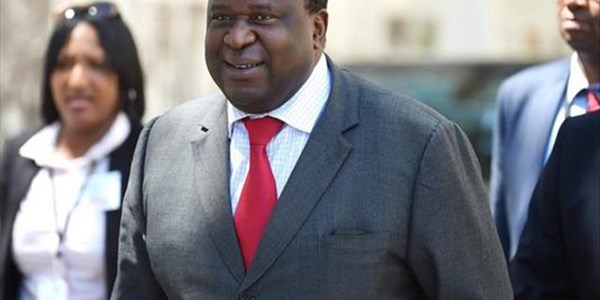South Africa
Treasury works to reduce ‘plundemic’ opportunities─── 12:03 Thu, 06 Aug 2020

Covidpreneurs looking to enrich themselves off funds set aside for personal protective equipment (PPE) for frontline health workers will have a harder time circumventing the state’s procurement processes.
This, as National Treasury has suspended emergency procurement and is set to introduce increased transparency.
Claims of corruption ranging from excessive pricing to the illegal procurement of supplies related to Covid-19 contracts have come into sharp focus, pushing President Cyril Ramaphosa to rope in the Special Investigating Unit (SIU) to investigate irregularities in the use of Covid-19 funds.
Ramaphosa has also established a multidisciplinary centre comprised of law enforcement and intelligence agencies to investigate cases around the procurement and distribution of food parcels, social relief grants and other funds set aside for the fight against Covid-19.
A number of cases are already under investigation.
An unethical society
On Wednesday Finance Minister Tito Mboweni and Director-General Dondo Mogajane informed Parliament’s finance committees on the measures they are putting in place to prevent the theft of Covid-19 resources.
“No sooner had we begun to make allocations for Covid-19 had the thieves begun to assemble at the door to plan to steal,” said Mboweni, reflecting on a “prophetic” statement he made in Parliament after a debate on the supplementary budget necessitated by the pandemic.
In the early days [of Covid-19 in SA], Treasury issued a number of instructions related to emergency procurement processes since the government declared a state of emergency in March.
Instructions that would regulate the items to be procured as well as price, criteria for qualifying companies and quantities were put in place to remove any barriers in acquiring PPE as rapidly as it was needed in a fast-changing market environment.
“In an ethical society, one would have expected that all the parties concerned would have followed the Treasury instruction to the letter and ensure that all that is being procured is in line with the instruction,” said Mboweni.
Transparency
“The fact is and reality is people found the opportunity to do that which is wrong.”
Mboweni will be meeting with all finance MECs (members of executive councils) on Thursday to investigate whether all the processes outlined by Treasury were followed.
To date, provinces have spent a total of R6.8 billion towards the Covid-19 response.
He said Treasury will also inform the finance MECs that they should publish all the contracts and details about the tendering companies, particularly in terms of how long they have been operating. If any politically exposed persons were awarded contracts, the process that was followed should also be declared.
Mboweni also wants details of the competitors who were bidding for the contracts and the reasons they were not successful to be made public.
“It would appear that there is a prima facie case that not in all instances was the Treasury instruction followed,” said Mboweni.
“There are those things that the National Treasury and the accounting officer and the procurement officers can do and there are those of a criminal nature which must be followed by the law enforcement agencies.”
Emergency period in perspective
In the immediate term, Mogajane said all emergency procurement of PPE and other protective clothing should cease, as the issues of “demand and supply” that government had to deal with in the early months of its response to the pandemic had ceased.
“As a result, we can all go back to measures we all know,” said Mogajane.
“You can now be part of a procurement list [and] the price will continue to be determined and dictated by us because we think we are at a better place to understand what the price is at any given time.”
Institutions will have to seek permission to procure above the absolute price set by Treasury, and state workers can still not do business with government.
Beyond that Treasury wants to modernise state public procurement to make the supply of goods and services easier, and to increase oversight.
“If the private sector can do it, why can’t we? We cannot rely on old archaic systems that do not help us,” said Mogajane.
He said Treasury will look for assistance from the private sector to develop an integrated project management service for the procurement value chain.
Mogajane says that automating and modernising the government procurement system will solve the challenges government has been dealing with, including delayed payments to suppliers.














